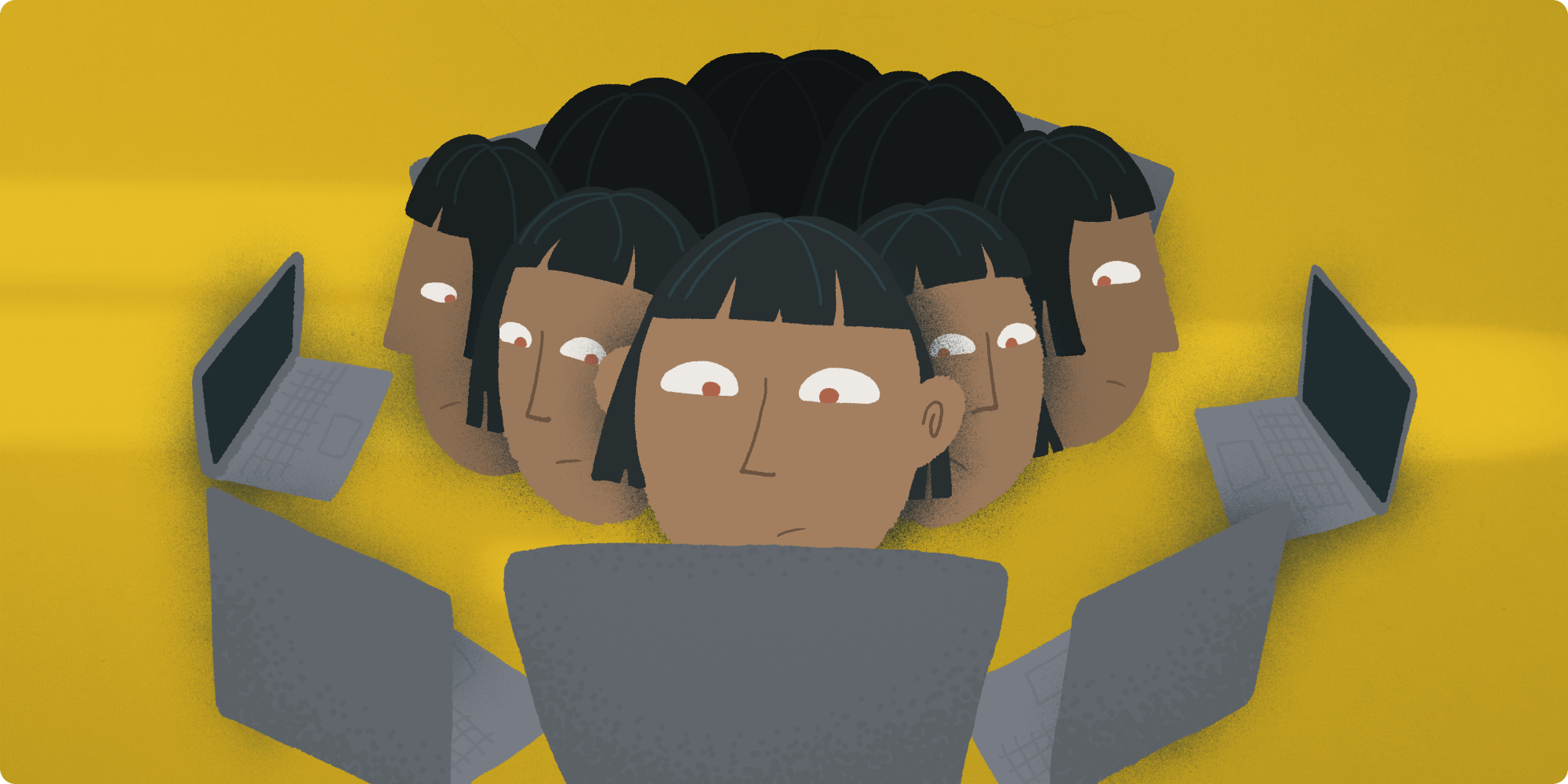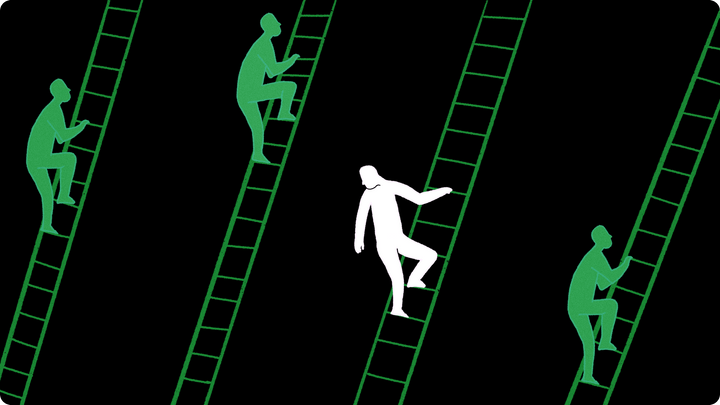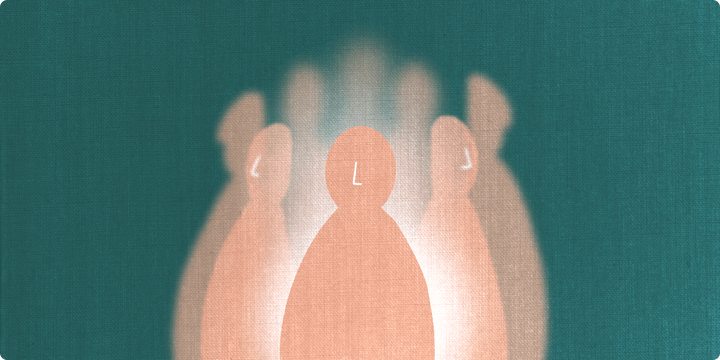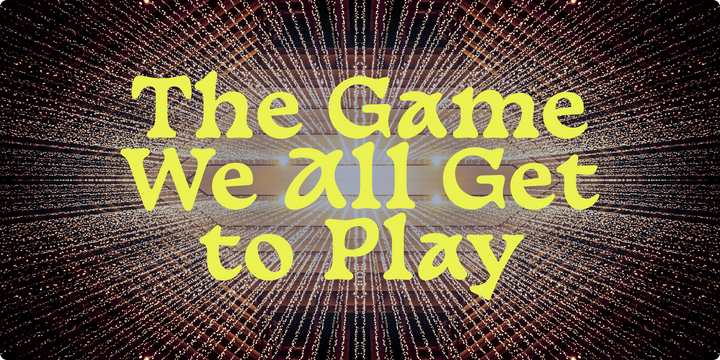The Nuance of Our Dualities
How Knowledge Work Has Tied Work to Our Identities

A phenomenon we’ve been noticing more and more in our work culture, is that work is decreasingly manual and increasingly cognitive. We’ve even arrived to a point where we call it "knowledge work". Our raw material is ideas, thoughts, information. And all day we move it around, send it over, curate it, edit it, publish it, consume it, repeatedly. We’ve come to be in such close contact with the world of ideas, that inevitably emotions started to join the game. If you think for a living, you’ll inevitably be thinking your own thoughts based on your own opinions anchored in your own biases. It becomes very personal very quickly. The thoughts and ideas you choose to work with are a direct reflection of your taste or interests of the moment. What you end up doing in your work ends up reflecting your self.
So that’s what I’ve been hearing around this phenomenon. Knowledge work has tied work to our identities. This is the first time in history that work sits on such blurred lines. For knowledge workers, jobs are now very often at the intersection of profession and passion.
But what are the consequences of having our work become a part of our identity? The lines between the personal and the professional are blurred. This has effects on the way we manage our time; or rather struggle to separate our time and create clear boundaries between work and play. Because for a lot of knowledge workers who are passionate about what we do, knowledge work is also a personal hobby we entertain.
Online, Everything Happens in the Same Places
Then there is the question of online identities. Being on the Internet requires an online version of ourselves; our profiles on various media. Since work and life is so intertwingled, these online profiles need to reflect this ultimate version of ourselves that integrates both the self as a professional, and the self as a human, which can get tricky.
I know for me, I’ve been trying to develop my design-life network in parallel with my other online communities of interest, but I have to do it on the same social outlets. Everything happens in the same places. Your company has a Twitter life they need to keep active with your involvement in it, you have your own Twitter life in which you sometimes wish you could make a random stupid joke but you consider your employer and it stops you.
With no separation between work-self and personal-self, we have been navigating this unwritten requirement of defining ourselves in a completely holistic way with the very few characters that bios provide us. We need to be able to describe all of the very multiple facets of our identities and interests in a short paragraph. We're being advised to embrace this new concept of a "personal brand" so we can elevator-pitch our whole entire selves to strangers in order to get new opportunities.
It’s a very tough situation to navigate. The notion of self has never been so malleable than in today’s digital world.
40 Hours Weren’t Meant for Intellectual Labour
There’s also the fact that knowledge work was never meant to be done forty hours per week. Once you’re forced to do these types of highly-cognitive tasks for so long, it’s inevitable that it propagates to other parts of yourself. For it to be productive, you need full concentration. A lot of mental energy is being applied on these ideas, questions, information, and it quickly ends up taking root in other parts of your self.
Knowledge workers get tied up between wanting to show up for their work as the best professionals they can be, and wanting to show up —in the same digital environments, at the same frequency ideally— for their personal matters as their best selves as well. This is a lot to handle and to maintain.
We have so many outlets now and opportunities to express ourselves and connect with like-minded people on the Internet, and these mechanisms are being leveraged by brands (companies, employers) as much as individuals. And the individuals working for these brands struggle with maintaining that practice simultaneously on both fronts.
With the popularization of Circle as an online community platform, I’ve had a bit of an identity crisis myself. For all the Circle communities I’m a part of —I don’t know if it’s a feature or a bug— I have a single profile and bio for all of them. But the problem is that Circle is used by the brand I work with for the community we’re building around UX design and it’s used by other communities I’m simply a member of, outside of work. But those communities range in topics from writing to productivity to futures thinking and as much as I wish I could introduce myself to all those people with the same two-liner, I really don’t think I can, or that it’s mentally healthy for that matter.
Having a single bio for all my @CircleApp communities is becoming quite the challenge#whoami#identitycrisis
— fanny.md (@FannyVassilatos) May 4, 2021
Our identities are contextual and the online world is undergoing a massive context collapse. News feeds have this way of collapsing time and space, which can be good in many ways, but they also collapse context. Some posts intended for a specific audience might find their way to a completely different one, and there's nothing you can do about their interpretation which will inevitably lack the right context. Formats are also inhibiting depth and nuance. Our identities are contextual and it's difficult to express them properly with so little control over said contexts.
The Nuance of Our Dualities
Personally, I have my alone-self and my family-self, my friends-from-college-self and my friends-from-camp-self, my French-speaking-self and my English-speaking-self, my Canadian-self and my Greek-self, my city-self and my country-side-self (yes, I dress really differently when we head to the country, I look like a boy and this self even has a name: Petit Pierrot (lil’ Peter)). That’s not even all of it, and that’s already a lot. We are all full of these dualities.
Where is the nuance of our dualities supposed to go? How is it meant to be captured and communicated in these new mediums? How are we supposed to distill the essence of all of these highly complex facets into a 160 character bio for internet strangers to get to know us. It’s unnecessarily hard. With so much of our time being spent in that digital context, that’s where the collapse happens. All the related floating identities ground themselves in that single context —the online world, and it makes us question our whole identities.
Further reading
- The Selfish Dataome by Caleb Scharf for Nautilus
- The internet is flat. by Charlie Warzel for the Galaxy Brain newsletter



